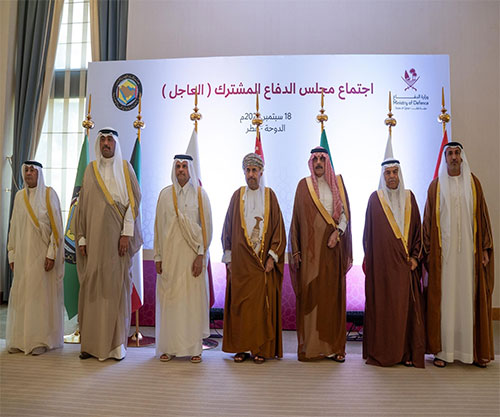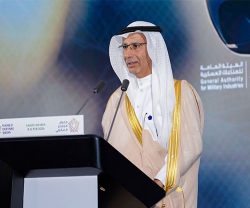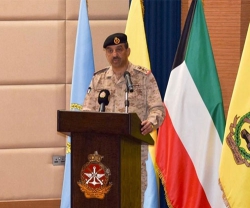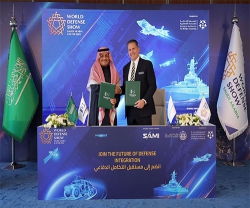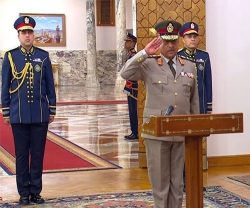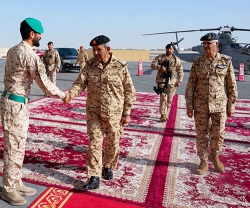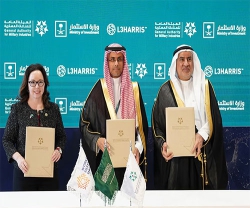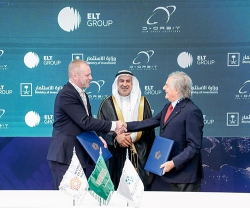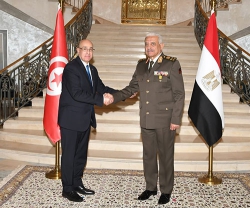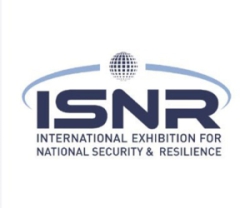The Joint Defence Council of the (Persian) Gulf Cooperation Council (GCC) strongly condemned the serious Israeli military attack on Qatar, affirming that this aggressive act represents a dangerous and unacceptable escalation and a grave violation of international law principles and the UN Charter, it announced on September 18.
The Joint Defence Council brings together the Defence Ministers of all GCC member states to coordinate collective security measures and respond to regional threats. Its authority derives from the Joint Defence Agreement of the GCC, which considers an attack on one member as an attack on all, mandating joint responses.
The Council, which convened in an extraordinary session in Doha, confirmed that any attack on Qatar is an attack on all GCC states, renewing its full support for all measures Qatar takes to maintain its security and defend its unity and territorial integrity.
The meeting was held in implementation of the directives of Their Majesties and Highnesses, the leaders of the GCC countries, Qatar News Agency (QNA) reported.
The meeting was chaired by Sheikh Saud bin Abdulrahman bin Hassan Al Thani, Deputy Prime Minister and Minister of State for Defence Affairs of Qatar, who serves as Chairman of the Joint Defence Council in its extraordinary session,
The Council approved a series of measures, including increasing intelligence information exchange through the unified military command, working to transmit the air situation picture to all operations centres in GCC states, and accelerating the work of the joint Gulf working team for the early warning system against ballistic missiles.
Other measures include updating joint defence plans through coordination between the unified military command and the GCC operations and training committee, and implementing joint exercises between air operations and air defence centres over the next three months, followed by an actual joint air exercise.
Gulf Cooperation Council Secretary-General Jasim Mohammed Albudaiwi said the attack on Qatar constitutes a direct threat to the security and stability of the entire region and an assault on diplomatic efforts and mediation carried out by Qatar to reach a ceasefire in Gaza and release hostages and detainees.
Albudaiwi added that the Joint Defence Council has approved a set of measures, including: increasing intelligence information exchange through Joint Defence Council approves a set of measures.
- Increase the exchange of intelligence information through the Unified Military Command
- Work to transmit the air situation to all operation centres in the GCC states
- Accelerate the work of the Gulf Joint Task Force for the Early Warning System against Ballistic Missiles
- Update joint defence plans in coordination between the Unified Military Command and the Operation and Training Committee of the GCC countries
- Conduct joint exercises between air operation centres and air defence forces over the next three months, to be followed by a joint actual air exercise.
He further noted that the Ministers of Defence of the GCC countries agreed to continue coordination and consultation at all military and intelligence levels to further enhance Gulf defence integration and intensify and link defence systems to confront all risks and challenges, ensuring the security, stability, and safety of all GCC countries and countering any potential threats or attacks that may endanger regional stability. (GCC Council; QNA; Photo © GCC Council)

